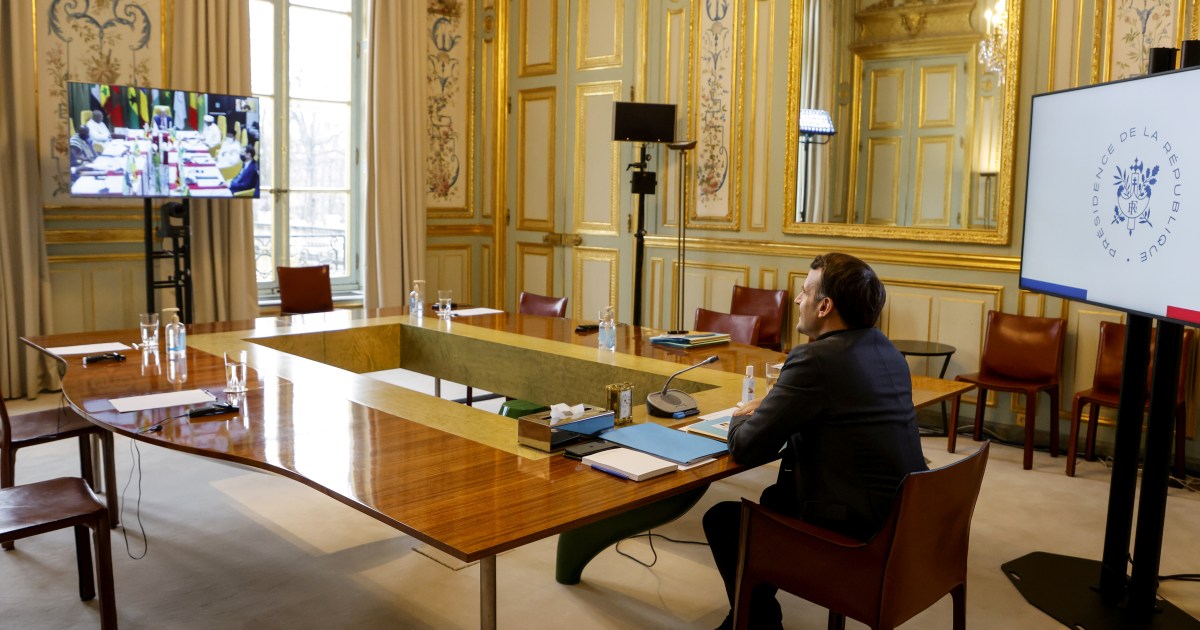Chadian President Idriss Deby Itno ordered to send 1,200 soldiers to the "border triangle" between Mali, Niger and Burkina Faso to confront armed groups in this region, according to what the Chadian presidency announced Monday evening on the sidelines of a summit of the G5 Sahel hosted by N'Djamena.
France wants to reduce its military presence and leave the region after a fierce war that cost billions of dollars and the lives of dozens of French soldiers.
Chadian state television said that the defense ministers of the five countries (Chad, Niger, Mauritania, Mali and Burkina Faso) headed Monday to the Nigerian city of Nguigme, near the border with Chad and where these 1,200 soldiers are currently stationed, who will later be deployed in the "border triangle" area.
The Chadian presidency said in a tweet on Twitter that the decision to send this battalion was issued by President Idriss Deby to combat armed fighters in this region.
N'Djamena announced a year ago during the summit hosted by the city of "Pau" in France, its intention to send these forces, but several factors prevented the deployment of this battalion, including the growing armed threat on the shores of Lake Chad and the continuing disagreement between Chad and its partners over the terms of the deployment of these forces.
And "financial matters" delayed the deployment of this battalion, as the Chadian president requested, among other things, that his country's partner countries pay part of the salaries of these soldiers, according to what diplomatic sources in the Sahel reported.
France
A few days ago, the Elysee admitted that "there are financial issues that have been settled."
France, which wants to reduce its military presence in the region, has demanded for many years that the member states of the group send troops to the border triangle, where 5100 French soldiers are currently deployed.
Since yesterday, 5 countries from the coast and France have held a summit to discuss combating the armed movements in the region, as Paris wants its allies to take over the political as well as the military part to reduce its continuous involvement 8 years ago.
The situation is still bleak in the Sahel region, as more than 8 years after the start of a security crisis in northern Mali that extends to the neighborhood, hardly a day passes in the three countries without an attack against the rest of the authorities' forces or the explosion of a homemade mine.
Civilians are the main victims of the conflict.
The number of displaced people exceeded two million last January.
Paris, which is facing increasing internal questions about the financial cost and human losses of the French participation (50 soldiers killed since 2013), realizes that the solution is not purely military.
France believes that its partners in the Sahel have not taken many steps in the political sphere, especially Mali, to implement a peace agreement signed with former rebels in the north, or to return teachers and doctors to the towns they abandoned.
France does not hide its intention to reduce its participation, and Macron said last month that his country wanted to "control its efforts," but Paris hesitated to reduce the number of its forces immediately.
Paris prefers to work on two axes to reduce its participation. The first is based on the "internationalization" embodied by the new special forces group "Tacuba", in which dozens of Estonians, Czechs and Swedes are participating, and the second is on handing over control of affairs to the local national armies that France is training with the European Union.
On the political front, Paris stresses that the time has come to take advantage of the space available due to the military gains in recent months to return the country to where it is currently absent.

